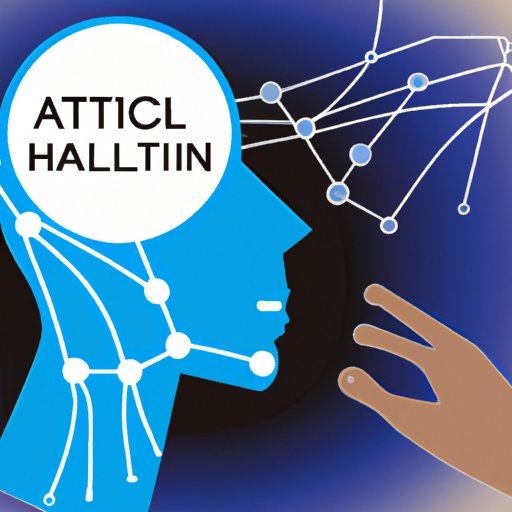Introduction
Artificial intelligence (AI) is a term used to describe computer systems that can think and act like humans. It involves the use of algorithms and machine learning to enable machines to learn from data and make decisions on their own. AI has been around for decades and has evolved significantly over time. In this article, we will explore when AI was first invented and how it has changed the world since its inception.

Historical Overview of the Invention of Artificial Intelligence
The concept of AI has been around since antiquity, with many philosophers and scientists exploring the idea of creating intelligent machines. However, the modern field of AI was not established until the 1950s. At this time, a handful of visionaries, including Alan Turing, John McCarthy, Marvin Minsky, and Herbert Simon, began to explore the possibilities of creating intelligent machines.
Turing is widely credited as the father of AI, having developed the Turing Test as a means of measuring a machine’s ability to think like a human. The Turing Test is a method of determining whether a machine can demonstrate intelligent behavior equivalent to that of a human. If a machine passes the test, it is considered to be exhibiting artificial intelligence.

Exploring the Development of AI from its Early Beginnings
In the 1950s, AI research began to gain momentum, largely due to the work of pioneers such as Turing, McCarthy, Minsky, and Simon. These pioneers laid the groundwork for the development of AI and pushed the boundaries of what machines were capable of. Their contributions were instrumental in paving the way for the development of AI as we know it today.
Throughout the 1960s and 1970s, AI research continued to progress, with researchers making significant breakthroughs in areas such as natural language processing, robotics, and machine learning. By the 1980s, AI had become an integral part of many industries, with AI-powered applications being used in fields such as finance, healthcare, and manufacturing.
How AI Changed the World: A Look Back at the Origins of AI
Since its inception, AI has had a profound impact on the world. AI-powered applications have made it possible to automate tasks that would otherwise be too laborious or time-consuming for humans to complete. AI has also enabled us to process large amounts of data quickly and accurately, allowing us to gain insights into complex problems and make better decisions.
AI has revolutionized many aspects of our lives, from improving healthcare outcomes to helping businesses become more efficient and productive. AI has also enabled us to develop smarter products and services, providing us with new ways to interact with technology. As AI continues to evolve, it is likely to bring even more innovations to the world.

A Timeline of AI: From Concept to Creation
The development of AI has been a long and winding journey. Here is a timeline of some of the key milestones in AI history:
- 1943: Warren McCulloch and Walter Pitts publish a paper on how neurons might work together to form thoughts.
- 1950: Alan Turing publishes his landmark paper, “Computing Machinery and Intelligence,” introducing the Turing Test.
- 1956: John McCarthy coins the term “artificial intelligence” at the Dartmouth Conference.
- 1966: Joseph Weizenbaum develops ELIZA, the first chatbot.
- 1969: Marvin Minsky and Seymour Papert publish “Perceptrons,” which introduces the concept of neural networks.
- 1977: The first expert system, MYCIN, is developed.
- 1980s: AI-powered applications become widespread in many industries.
- 1997: IBM’s Deep Blue defeats Garry Kasparov in a game of chess.
- 2011: IBM’s Watson wins Jeopardy! against two of the show’s all-time champions.
- 2012: Google’s AlphaGo defeats Lee Sedol, one of the world’s top Go players.
- 2017: Google’s AlphaZero defeats Stockfish, the world’s strongest chess engine.
Conclusion
The invention of AI has revolutionized many aspects of our lives. From automating mundane tasks to helping us make better decisions, AI has enabled us to do things that were once thought to be impossible. While AI still has a long way to go before it reaches its full potential, the progress it has made so far is remarkable.
The future of AI looks bright, with many experts predicting that AI will continue to evolve and become even more powerful and pervasive in our lives. As AI continues to become more advanced, it is likely to bring even more innovations to the world.
(Note: Is this article not meeting your expectations? Do you have knowledge or insights to share? Unlock new opportunities and expand your reach by joining our authors team. Click Registration to join us and share your expertise with our readers.)
